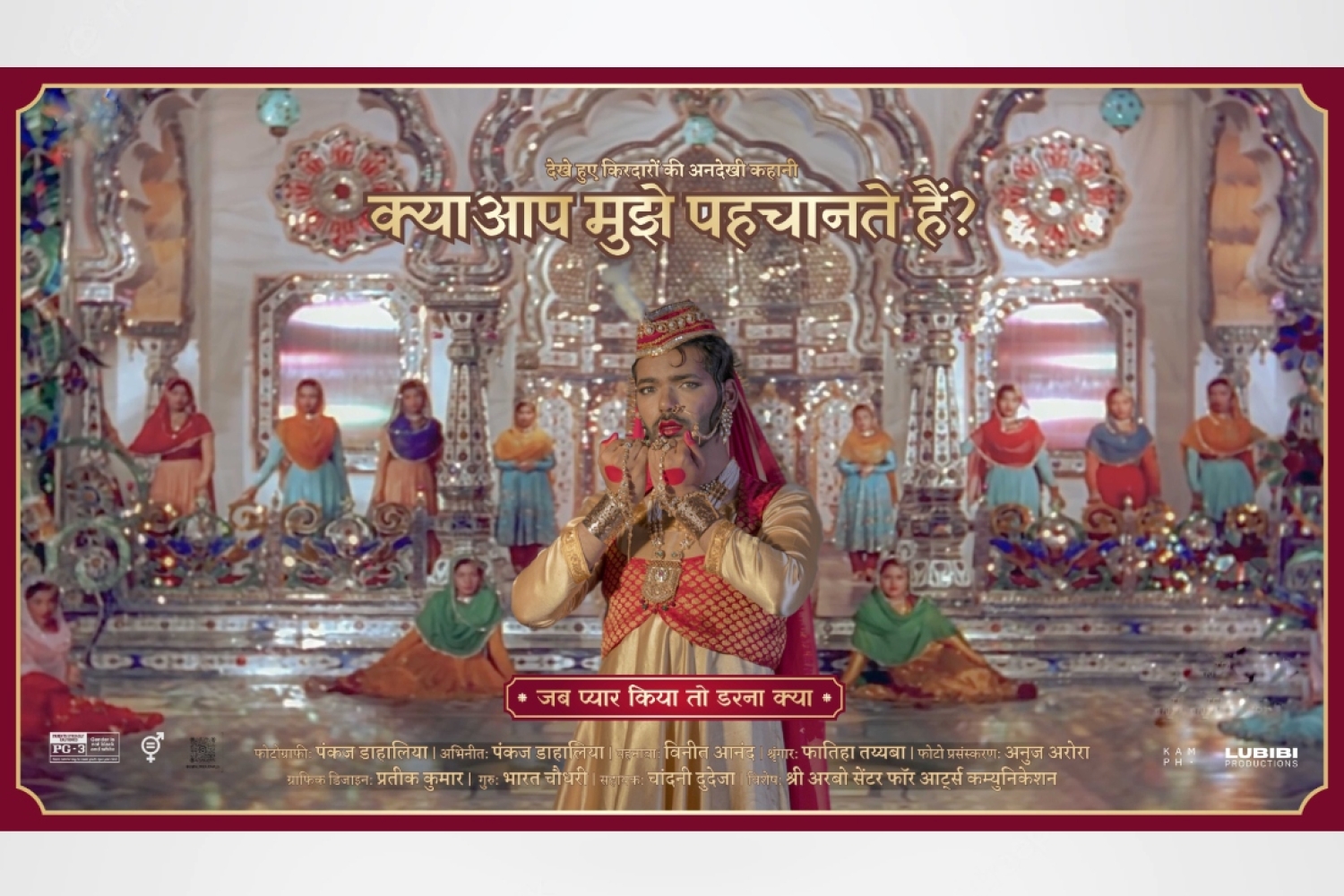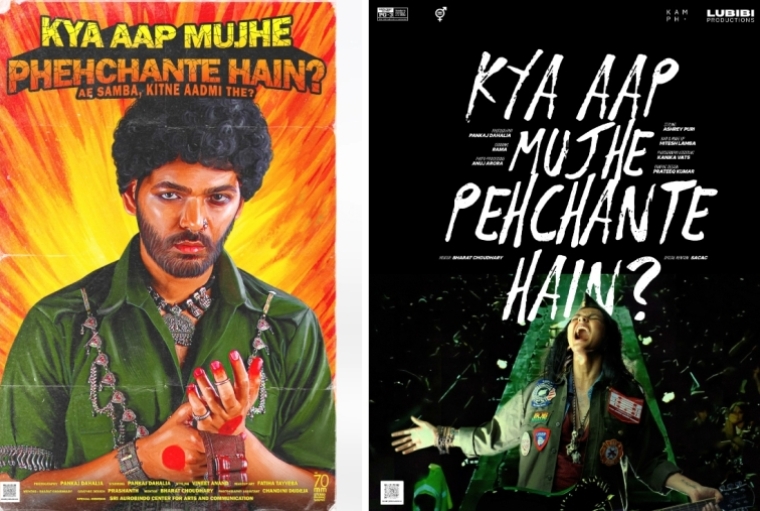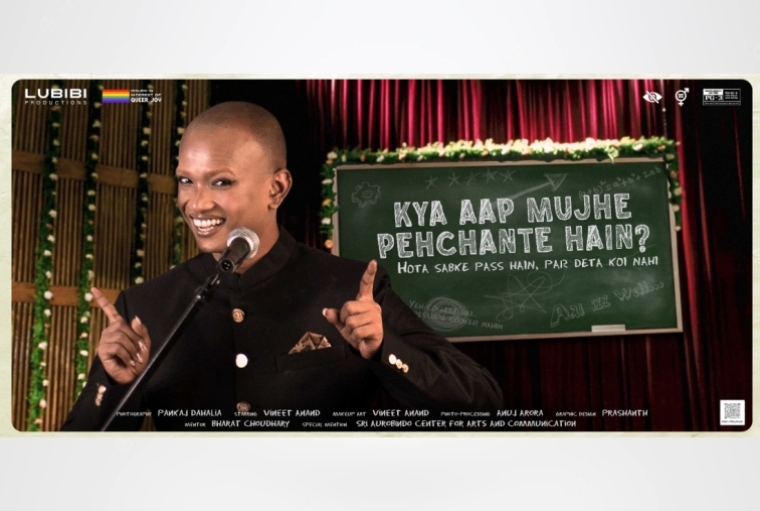

The independent and queer photographer Pankaj Dahalia, dabbles with different genres of the visual arts in a bid to deeply explore the discourse surrounding identity, community, culture, and memory. Keenly interested in sexuality and the gender politics of representation, his practice traverses across boundaries of theatre, photography and performance art. For Pankaj, photography stands as a medium that helps him constantly challenge himself, and leads to eventual growth.
What started as a project involving self-portraits, his series called Kya Aap Mujhe Pehchante Hain? (Can You Identify Me?), culminated into something much more vast. Belonging to the queer community, he wishes to be seen. Consequently, the intent behind the series is to go beyond a mundane and sanitised conversation, speak to a larger audience, build a narrative around gender in daily household discussions, and bring forth larger visibility to the stories of queer existence in the intimate space.
We’re in conversation with Pankaj, who takes us through his creative process and more.
For what does your practice stand?
It is through my practice that I show my resistance to the binaries of gender, to the suppression of our existence and to the crushing of our desires. My work stands to explore and to fight. I look at photography as a starting point in my practice. My photographs therefore are not just abstract but try to materialise into something tangible, thereby questioning and re-defining the narrative of queer and trans folks.

Take us through your creative process for the same.
It’s been two years and the work is still ongoing. KAMPH challenged me in more than one way. I spent the initial few months reading, researching and writing about gender. Then I started visualising what I wanted to create. I lived with these thoughts and photographs for a little while.
All the participants in this project are either queer, non binary or trans. I would first get on a call with them, explain the idea and what I really wanted to do. It was followed by conversations about their life, their perspective and presentation of gender in everyday life. I would individually work with the cast on who they wanted to be. I would ask them to come up with at least five characters they would be interested in, and I had a list of most impactful characters from Bollywood. We would together then decide which character resonated with them the most.
Once we had finalised the characters, we sat down to imagine that character from the cast's gender perspective. I would ask them this question, “If you were playing that character, if this was your story, what would it look like?” The answers to this question were usually our brief for the makeup and costume. Their imagination was a direct visual cue. As for the costume, we rented out similar looking costumes from a shop and also made some ourselves. It was a collaborative effort. Then I photographed them wearing these clothes and desired makeup. They would pose and emote in a way which was already decided according to the scene the photographs were going to be superimposed on later. The post production process involved a lot of work and crucial decision making. Even though we shot keeping the final result in mind, there were a lot of tricky decisions made at this stage.

What do you wish for the audience to take away from this project?
I demand a moment from everyone — a moment that might introduce chaos, denial, acceptance, warmth, disgust, love or just confusion. I wish the audience to be affected. There is something for everyone here. The hope is that the audience is able to see and acknowledge the existence of queer, trans and non-binary folks in their everyday lives, thereby creating a moment of confrontation.
Finally, what's keeping you busy right now?
Apart from researching and reading about my next project, I am currently focusing on the second phase of Kya Aap Mujhe Pehchante Hain? To make the work public and accessible to as many people as possible. You can soon expect to see these posters on the streets, nukkads and around you.
Words Unnati Saini
Date 27-01-2023